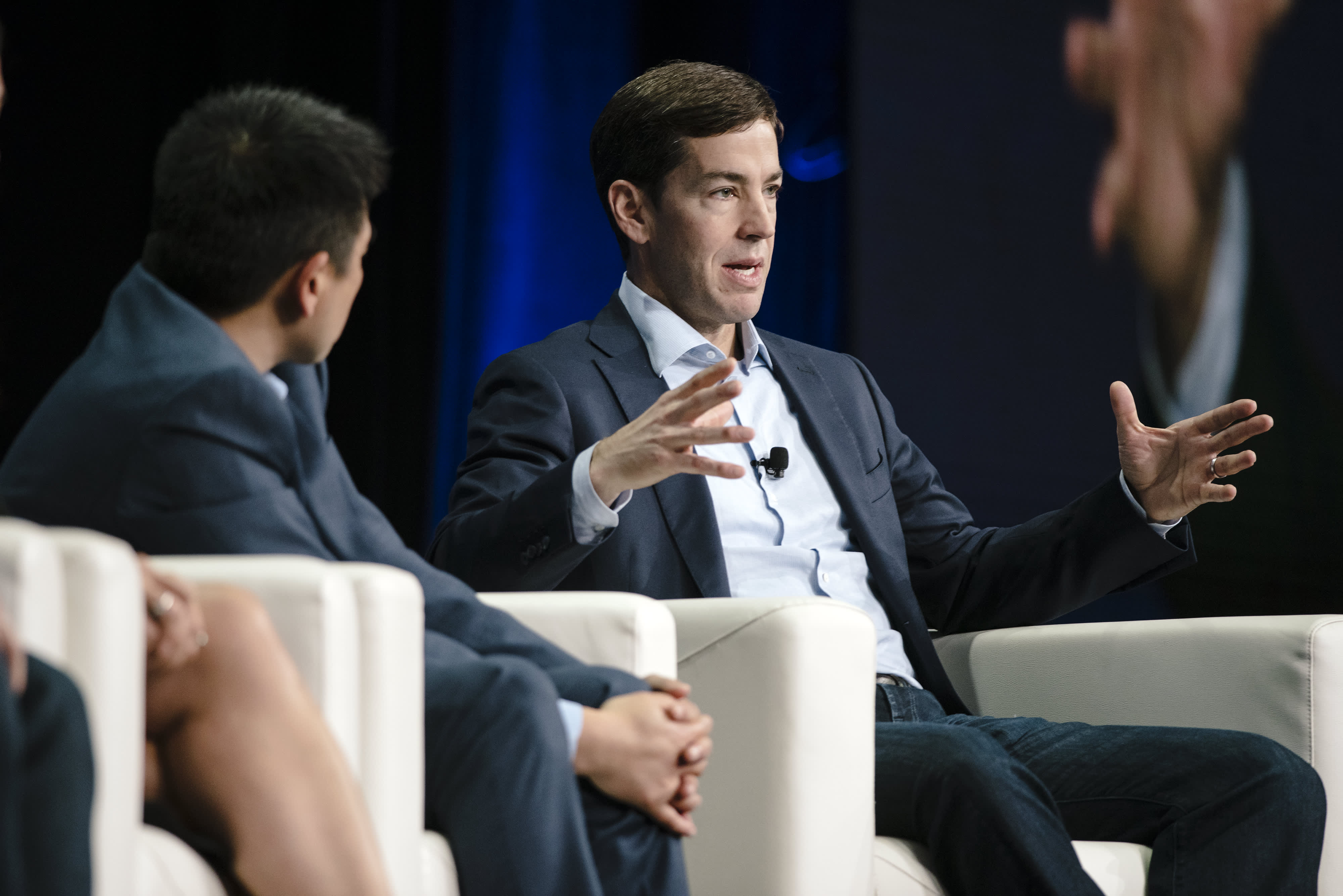
Okta co-founder and CEO Todd McKinnon told CNBC on Thursday the software company is keeping its headquarters in California while also embracing large-scale remote work for employees.
“We’re being very flexible about where we build out our workforce,” said McKinnon, whose company is based in San Francisco with a second headquarters on the other side of the bay in San Jose.
“It has nothing to do with those cities, specifically. It has everything to do with the fact that we are in a war for talent and the more broadly we can appeal to people, in terms of letting them work from anywhere and … letting them contribute at a high level from anywhere, that’s our plan,” he added on “Squawk Alley.”
McKinnon’s remarks follow the announcement earlier this week from Hewlett Packard Enterprise, which said it is moving its headquarters to Houston, Texas, from San Jose. And this summer, Palantir Technologies said it is relocating from Palo Alto to Denver, Colorado. Palantir’s chief executive, Alex Karp, had been critical of Silicon Valley prior to the move, saying there is “increasing intolerance” in the nation’s tech capital.
It also is expensive. For example, when Facebook CEO Mark Zuckerberg unveiled the California-based social media giant’s plans to let certain employees work remotely, he indicated compensation would be recalibrated based on where they choose to live.
“We’ll adjust salary to your location at that point,” Zuckerberg said in May. At the time, he predicted 50% of Facebook’s employees could be working remotely within the next decade.
Spurred on by the coronavirus pandemic, other companies are making decisions similar to those of Okta and Facebook and further embracing a work-from-anywhere policy. Jack Dorsey’s two companies, Twitter and Square, told employees they can work from home “forever” if they want. Both are based in San Francisco.
Okta, which provides security and identity management software, had 2,248 employees as of Jan. 31, according to its annual report. McKinnon, who left Salesforce to found what became Okta more than a decade ago, stressed that its remote-work policy is about competing for top-tier employees.
“Internally, we call it dynamic work,” he said. “We want to attract the best people anywhere in the world and give them the freedom and the capability to be productive and build the best products and provide the best services to our customers.”






















